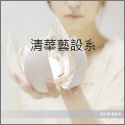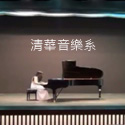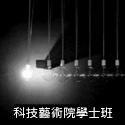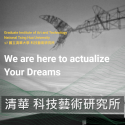Dean | Associate Dean
Dean (2023.08~ )
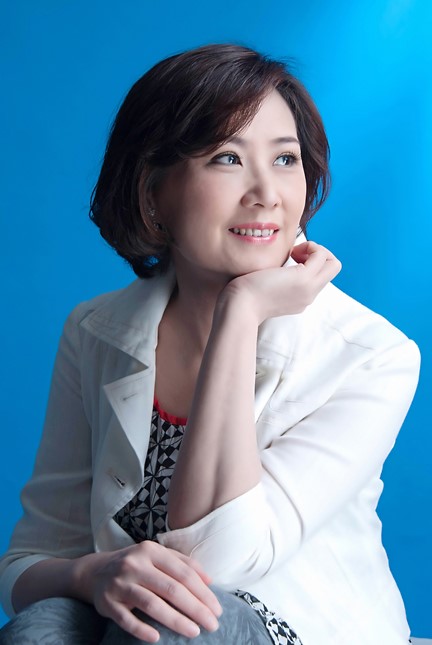
Prof. Fang-Yu Chang
Areas of Expertise|
vocal music, opera research, art song research
Educational Background|
D.M.A., Michigan State University, U.S.A. (vocal performance)
Current Positions|
Professor of the Department of Music in the College of Arts at National Tsing Hua University, member of the Association of Vocal Artists of R.O.C., art director of Dilly Vocal
Experience|
Dr. Fang-Yu Chang graduated at the top of her class from the Department of Music at Tunghai University in 1987. She majored in vocal music, and her teachers included Professors Yu-Wen Fan, Yi-Lin Hsu, and Syou-Fen Lee. In 1990, she went to the U.S.A., where she pursued her master’s and doctoral degrees at Michigan State University, obtaining a D.M.A. in vocal performance in 1995.
During her studies in the U.S.A., Dr. Chang learned from renowned prima donna of the Düsseldorf Opera House in Germany and the chair of vocal arts at Michigan State University, Professor Meredith Zara. Her outstanding performance gained her a scholarship, and she served as Meredith Zara’s teaching assistant in individual vocal courses. During her studies, Dr. Chang was chosen to perform in Michigan Opera Theatre’s Die Zauberflöte, and she took part in a Selections from Hansel and Gretel concert that was broadcasted by the local radio station. She also held many concerts, the repertoire including art songs, liederkreis, opera selections, and chamber music. Among these, Dr. Chang excelled at interpretations of Puccini operas, Hugo Wolf and Richard Strauss’s art songs, and Samuel Barber’s vocal compositions. Her repertoire also included La bohème, Le nozze di Figaro, Così fan tutte, and Amahl and the Night Visitors, as well as chamber music collaborations with instruments. With her bright, natural, and broad timbre, her performances were well received.
Upon her return to Taiwan in 1995, Dr. Chang became a full-time teacher in the Department of Music at National Hsinchu Teachers College (now NTHU). In 2003, she continued her education under world-famous coloratura soprano and the lifetime soloist of the Finnish National Opera, Yunus Dilbèr, gained recognition and refined her singing skills even further. Still teaching today, Dr. Chang continues to sing; she has held around 15 soprano recitals and has been invited to perform in other concert performances.
Outside of her performances, Dr. Chang actively participates in academic research, teaching, and competition judge work. Her experiences including being a member of an international seminar committee, the principal investigator of Teaching Excellence Project funded by the Ministry of Education, the planning executive and host of a vocal masterclass lecture, the planner and instructor of the Art Festivals at the National Hsinchu University of Education, the host of a violin master class with internationally celebrated violinist Cho-Liang Lin, a member of an elementary school affairs visiting and review committee, an oral examination committee member for elementary school teacher recruitment, a postgraduate oral examination committee member, a member of an advisory committee for elementary schools in the Taoyuan, Hsinchu, and Miaoli area, a judge for the non-student division of a choir competition hosted by the Ministry of Culture, a judge for a national music competition hosted by the Ministry of Education, a judge for a music competition hosted by the Association of Vocal Artists of R.O.C., and the planner and pre-concert talk speaker of a music concert hosted by the Shanghai Commercial & Savings Bank.
The courses that Dr. Chang mainly teaches at NTHU at present include Vocal music, English Diction, and British-American Songs.
Associate Dean (2023.08~ )
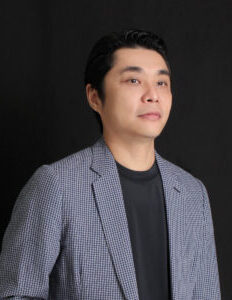
Prof. Chih-Yung Chiu
Areas of Expertise|
digital aesthetics, digital performance and techno-theatre research, technological culture research, software research
Educational Background|
Ph.D. in School of Interdisciplinary Arts, Ohio University, U.S.A. (double major in visual arts and film studies; minor in aesthetics)
Current Positions|
Professor and director of Graduate Institute of Art and Technology at NTHU, chair of Interdisciplinary Program of Technology and Art
Experience|
2019-present, professor in the Interdisciplinary Program of Technology and Art, College of Arts, National Tsing Hua University
2018-2019, professor in the Department of Fine Arts, National Taiwan Normal University
2016-2018, professor in the Media Arts and Design Program and dean of the School of Culture and Creativity, Beijing Normal University – Hong Kong Baptist University United International College
2015-2016, professor in Cinema and Television Program, Beijing Normal University – Hong Kong Baptist University United International College
2007-2015, professor and chair of the Department of Mass Communication, Providence University
2013-2014, nominator for Taishin Arts Award of Taishin Bank Foundation for Arts and Culture
2005-2007, assistant professor and chair of the Department of Motion Pictures and Video, Kun Shan University
Dr. Chih-Yung (Aaron) Chiu is a professor and director of the Graduate Institute of Art and Technology at NTHU and chair of the Interdisciplinary Program of Technology and Art. He is also a curator, art critic, photography artist, director of the Digital Art Foundation, and a supervisor of the Cultural Studies Association. Dr. Chiu received his Ph.D. from the School of Interdisciplinary Arts at Ohio University in the U.S.A., with a double major in visual arts (painting, sculpture, and architecture) and film studies (theories and criticism), as well as a minor in aesthetics (phenomenology). His areas of expertise include digital aesthetics, technological culture research, art criticism, and curation. His works were nominated for the 1st and 2nd Digital Art Criticism Awards Taipei (2007 and 2008); he qualified for visiting scholar programs at Tokyo University, Japan, for two years in a row (on a fellowship offered by the Japan-Taiwan Exchange Association) and received special research program grants from the Ministry of Science and Technology in Taiwan for many years.



